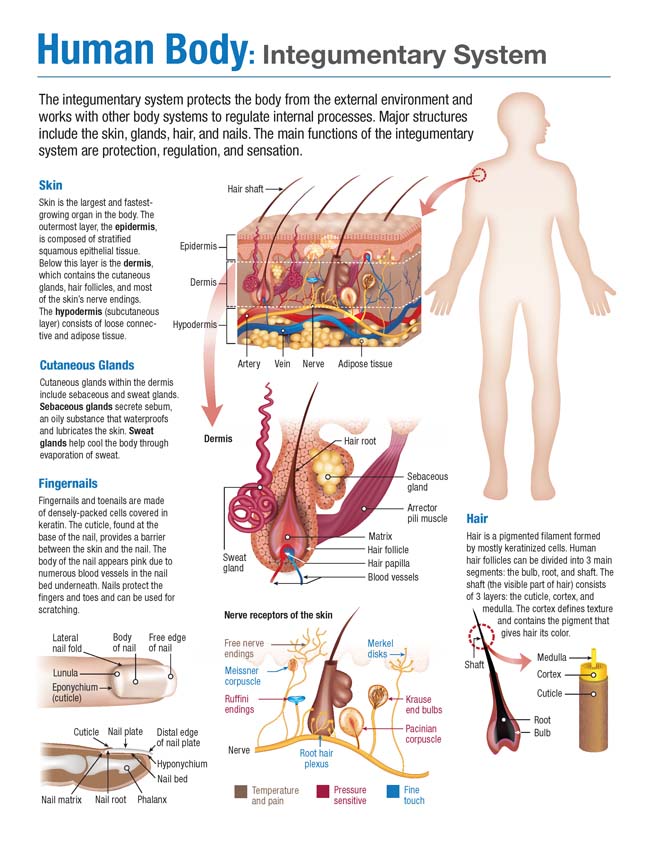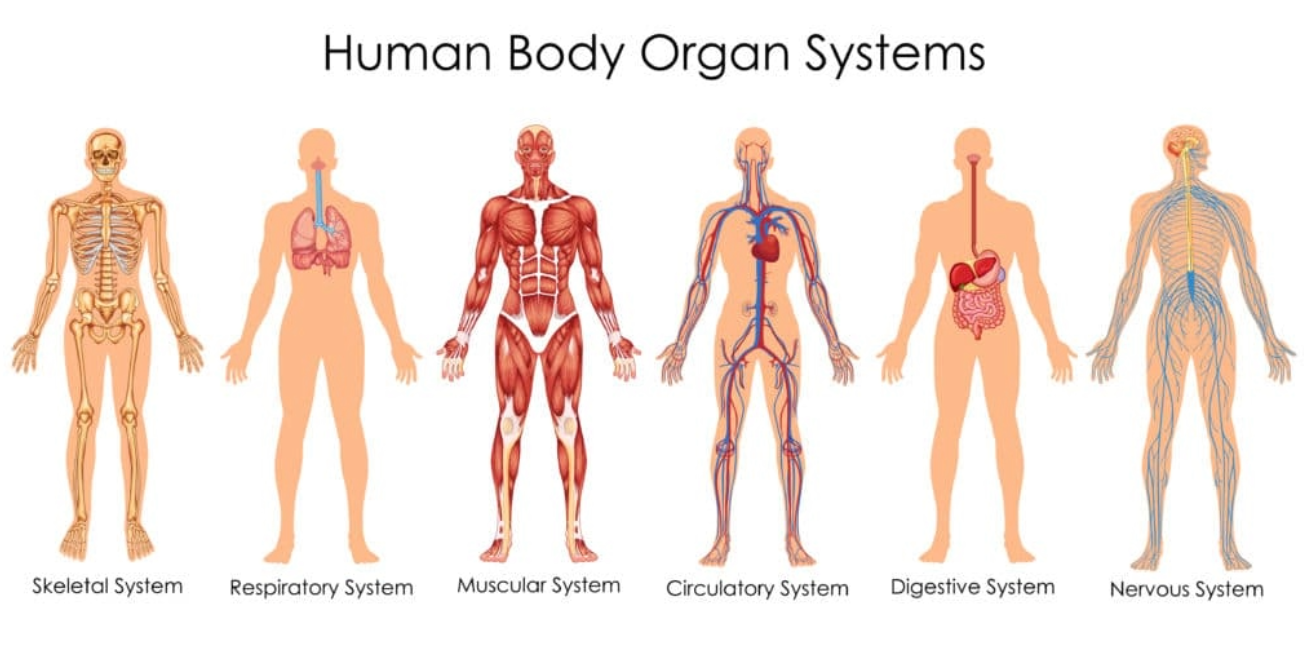The Integumentary System: Your Body's Protective Armor
The integumentary system is like a shield, safeguarding our inner workings from the outside world. Comprising the skin, hair, nails, and associated glands, it serves as a crucial barrier against pathogens, UV radiation, and environmental toxins. This system also regulates temperature and prevents excessive water loss.
This system includes the skin, hair, nails, and exocrine glands (glands that secrete). Skin is the largest organ of the body and helps regulate body temperature, synthesize vitamin D, and offer layers of protection from infection, injury, and fluid loss. The integumentary system serves as a physical barrier between the external environment and the internal environment, where the other body systems reside. It’s closely connected to the immune system because the skin provides the first line of defense against pathogens. Sensory nerve endings in the skin relay pain, touch, and temperature signals to the nervous system’s command center, the brain.
Function of the Integumentary System:
The primary function of the integumentary system is to provide protection and act as a barrier between the body's internal environment and the external world. Serves as a barrier to protect the body from the external environment. The skin, hair, and nails form a protective barrier against pathogens, regulate temperature and house sensory receptors. It prevents pathogens, chemicals, and physical injuries from entering the body. Additionally, it regulates body temperature, produces vitamin D through sun exposure, and houses sensory receptors for touch, temperature, and pain. Skin conditions like dermatitis, melanoma, and infections can compromise this system, leading to discomfort and potential health issues.
Examples of the Integumentary System:
- Skin: The largest organ of the integumentary system, the skin consists of three layers: the epidermis, dermis, and subcutaneous tissue. It contains sweat and oil glands, hair follicles, and numerous sensory receptors.
- Hair and Nails: Hair provides protection and helps regulate body temperature, while nails serve as protective shields for the tips of fingers and toes.
Potential Risks and Imbalances:
- Skin Disorders: Include conditions like acne, eczema, alopecia, hyperhidrosis (excessive sweating), psoriasis, and skin cancer.
- Exposure to UV radiation and pollutants can heighten the risk.
- Infections: Bacterial, viral, and fungal infections can occur if the skin's protective barrier is compromised.

LifeWell Tips to Support Integumentary Health:
- Hydration and Balanced Diet: Ensure adequate water intake and incorporate a diet rich in antioxidants, vitamins, and minerals. Berries, leafy greens, and nuts are particularly beneficial for skin health.
- Sun Protection: Safeguard your skin from harmful UV rays by using sunscreen. Additionally, wear protective clothing and seek shade during peak sun hours.
- Gentle Cleansing: Opt for mild, pH-balanced cleansers to avoid stripping natural oils from your skin. Harsh soaps can disrupt the skin's protective barrier.
- Regular Check-ups: Stay vigilant about any changes in moles or alterations in your skin's appearance. Early detection of abnormalities can be crucial in maintaining skin health.
- Stress Management: Practice techniques like meditation, deep breathing, or yoga to reduce stress levels. High stress can contribute to skin issues.
- Exercise Regularly: Physical activity promotes healthy circulation, which is beneficial for overall skin health. It also helps in maintaining a healthy weight, which can impact skin appearance.
- Adequate Sleep: Ensure you get 7-9 hours of quality sleep each night. Sleep is crucial for skin repair and regeneration.
Foods and Supplements for Integumentary Health:
- Fruits and Vegetables: Rich in vitamins A, C, and E, these support collagen production and protect against oxidative stress.
- Omega-3 Fatty Acids: Found in fatty fish, flaxseeds, and walnuts, they help maintain the skin's lipid barrier.
- Collagen Supplements: These can support skin elasticity and hydration.
Remember, these tips are meant to complement a balanced lifestyle and should not be used as a substitute for professional medical advice. If you have specific skin concerns, consult a dermatologist or healthcare provider.
LifeWell Coach Services:
With LifeWell Coach services, you'll receive personalized guidance for maintaining a healthy integumentary system. Our expert LifeWell Coach specialize in empowering individuals to nurture their skin, hair, and nails through tailored nutrition plans, skincare routines, and lifestyle modifications. Join us on this transformative journey towards radiant integumentary health!









